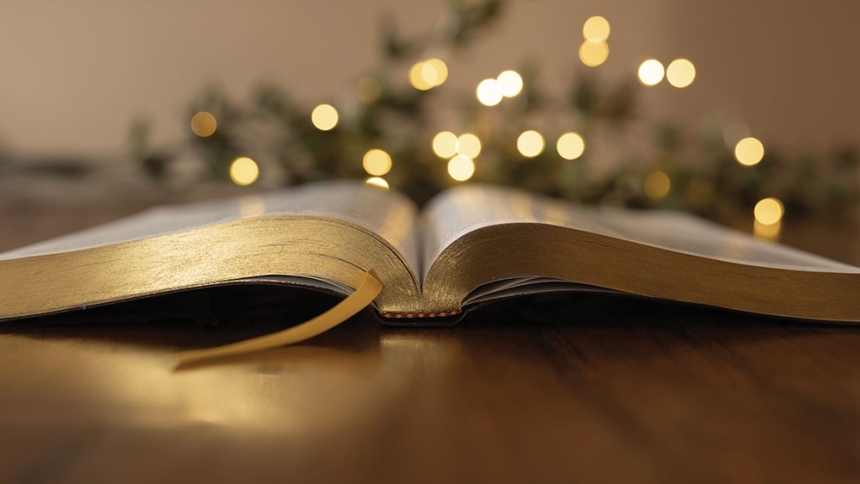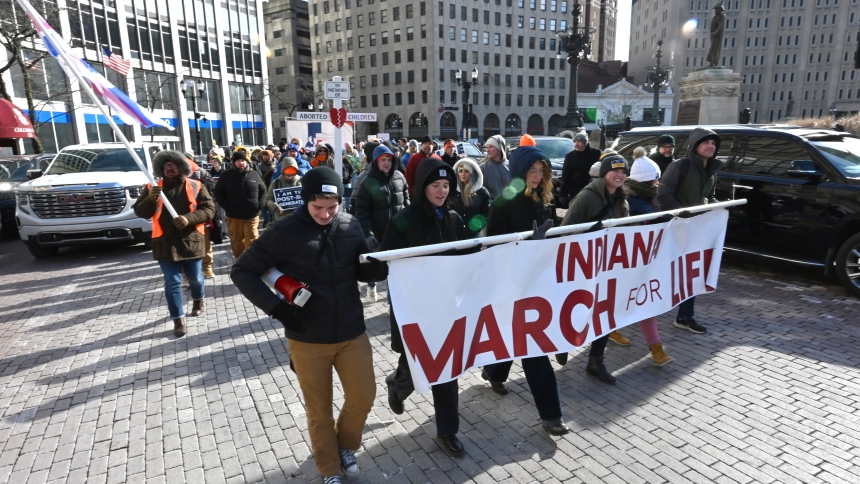
As published in the Northwest Indiana Catholic on January 13, 2019
This Sunday, we close the Christmas season with the celebration of the Baptism of the Lord. The dramatic moment, when Jesus rises from the waters of the Jordan, anointed in the Holy Spirit, publically confirmed as the Son of God, marks the beginning of the Lord’s ministry and mission: to save the human race from sin and death!
Jesus came to change everything that needed redemption and transformation.
This solemnity also serves as a profound moment to meditate on the gift and purpose of our own baptism in Christ. In this primordial sacrament, we became a new creation, adopted as children of God, immersed in the life of the Trinity, joined to the Church, pledged for eternal life, given a mission of holiness and grace.
Even if we were baptized as infants, this sacrament marks the death of the old, unredeemed self and the rising in Christ of who God dreams us to be as his beloved sons and daughters.
A fresh newness, a sun-lit promise pervades the baptism of every person as we each set out on the road of discipleship to the Father’s House. In Revelation, Jesus proclaims, “I make all things new!” In the pristine moment of the Lord’s baptism, we see Jesus just setting out on the great joyful, sorrowful and ultimately glorious adventure of salvation. His miracles, preaching, conflicts with the Pharisees and terrifying Passion all lay between this baptismal beginning and the consummating moment of the Resurrection.
As we have begun this new year of 2019, the Lord is calling us to renew our own lives as well. How can I refresh my spiritual life, make a deeper commitment to prayer, stop worrying so much and look at life through the eternally fresh prism of Christ’s vision? Our Catholic faith is a balance of tradition and innovation; we believe eternal truths concerning the nature of God, the identity and mission of Jesus Christ, the veracity of the Scriptures and the sanctifying power of the sacraments. These essential and eternal realities cannot and will never change.
On the other hand, how the Church proclaims the Gospel, organizes herself, addresses social and moral issues of the day and embraces the life of Christ on the local level has been constantly changing for 2,000 years. Parish life, as we know it in our particular community, the function of the papacy, how we train priests, the role of the laity, how we celebrate Mass have all changed in many respects throughout the history of Christianity.
The fundamental challenge lies in holding fast to what is essential and fixed, while being flexible regarding what is adaptable and new. Of course, Catholics have been arguing since Pentecost concerning where this balance lies.
We can all agree that change is part of life. The only things that never change in this world are dead and lifeless. We can easily feel disoriented by the rapidity of societal change today, from communications to marriage, from the economy to culture, from education to religion. The world is in constant flux and movement.
Not all of these changes are necessarily good, but we still need to respond to them and take them into account when we are evangelizing, catechizing, preaching or planning. To think we can form children in the faith exactly as it was done in 1970, or to preach precisely as was done even 10 years ago, or to presume that a priest will stay in one parish for 25 years, or that every parish will always continue to exist in its current form is not realistic.
We may fear change, fight it, try to work around it or ignore it, but if we never strategically think anew how to live the faith, organize the Church and proclaim the Gospel in changing circumstances, we will die. I am not saying we should change the faith, or water down its potency and challenge, but we need to be creative and adaptable if we are going to remain vibrant and relevant.
We cannot think that the diocese can do things the same way with 50 active priests as when there were 100. We cannot presume that our parish will just somehow remain open forever as it is, even though the median age of active members is 70 and the collection is going down. We cannot simply assume that young people will go to Mass without question just because we did. These changing situations demand creativity, courage, boldness and imagination.
Our diocesan synod is our attempt to renew the life of the local Church through the strategic plans every parish created for their own local ecclesial reality. I am grateful to our priests, deacons, lay leaders, diocesan staff, newly-reconstituted Diocesan Pastoral Council and our people for being open to and participating in this ongoing process of reimagining how we live out the unchanging Gospel mandate to go preach the Gospel to all nations and make disciples.
We all instinctively cling to the security of what we know and resist change as a threat to our established order of understanding and action, but if we allow that fear and resistance to control the future of the Church, we will continue to experience decline and diminishment.
In 1975, the film, “The Land that Time Forgot” was released, its plot revolving around the discovery of an uncharted island in the south Atlantic, which contained dinosaurs and primitive peoples. Without ever compromising the integrity of the Catholic faith, we can never simply try to exist in an idyllic, mythical past or rest in a complacent present.
The Gospel calls us to embrace and mold a future of hope and promise, as we proclaim that Christ is gloriously alive and the Church is forever young.
+ Donald J. Hying


